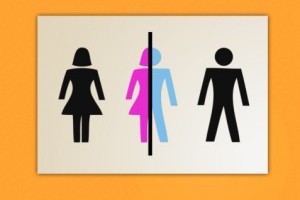95 Gender Neutral Language
Based on research by Stout, Jane & Dasgupta, Nilanjana, 2012, written by Kyle Piecora, M.S..
We have all felt left out of a group at least once in our lives. Does the language we use lead some people to feel excluded?
Drs. Stout & Dasgupta of the University of Massachusetts Amherst asked men and women to read a job interview containing either masculine, gender exclusive language (like using the word “he”), gender inclusive language using the phrase “he or she,” or gender neutral language like using the word “one.” Next, they rated their feelings of exclusion, as well as feelings of motivation, identification with the job, and their perceptions of being able to advance professionally. Women, in contrast to men, who read male gender exclusive passages felt more left out than those reading gender inclusive or neutral passages. They also felt less motivation and identification with the job.
The typical English gender exclusive style of writing that has been used in the past may be ostracizing women without our intending to. When speaking or writing, use gender inclusive or neutral referents. Substitute humankind for mankind; humans for man when referring to both genders. Exclude specific gendered referents (e.g., An ideal student is one who sets goals for himself. Instead use themselves). You will be including more people and developing better motivation!
References
Stout, J.G., & Dasgupta, N. (2011). When he doesn’t mean you: Gender-exclusive language as ostracism for women. Personality and Social Psychology Bulletin, 37, 757-769.





